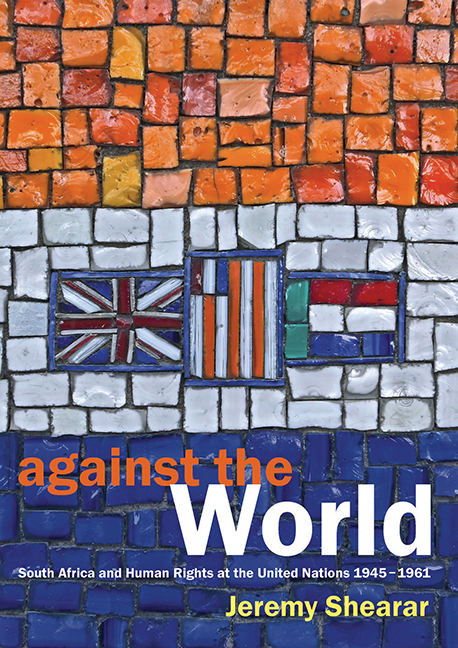
- Publisher:
- University of South Africa
- Online publication date:
- March 2020
- Print publication year:
- 2017
- Online ISBN:
- 9781868888795
Last updated 10th July 2024: Online ordering is currently unavailable due to technical issues. We apologise for any delays responding to customers while we resolve this. For further updates please visit our website https://www.cambridge.org/news-and-insights/technical-incident


Against the World maps South Africa’s journey to increasing isolation in the United Nations, from a respected member in 1945 to a pariah’ in the early sixties. The book reveals how this country became the main architect of its own growing isolation, since it refused to modify domestic policies that alienated even its potential allies. Its low profile in debates and constant abstention on human rights instruments were seen as a lack of interest in global humanitarian affairs. Events unfold from 1945, when Field Marshall JC Smuts proposed the adoption of a Preamble to the United Nations Charter. Three years later, South Africa refused to sign the Universal Declaration of Human Rights. Global criticism against apartheid intensified, until in 1960 it culminated in calls from African members for economic and diplomatic sanctions. By 1961, South Africa had become isolated in the United Nations and relegated to a moral wilderness. For the modern reader of history and social affairs, the book clarifies South Africa’s past and present role in the evolution of international humanitarian law.
 Loading metrics...
Loading metrics...
* Views captured on Cambridge Core between #date#. This data will be updated every 24 hours.
Usage data cannot currently be displayed.